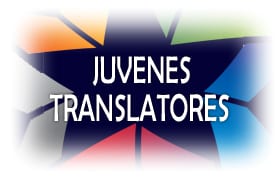It’s not hard to write articles bemoaning the state of foreign language education in the UK. We do it pretty regularly because we think it’s very important that we try to reverse the rather appalling trend of decline. However, today, for a change, I am pleased to be able to report a good news story about language education.
Specifically, it’s encouraging to see that at the end of January, the European Commission announced the winners of the 2019–2020 edition of Juvenes Trans
Europe’s annual competition for young translators began in 2007 and this was the first time it was conducted completely online. Participants were given the option to translate between any two of the EU’s 24 official languages. There are 552 possible language combinations available and the students used 150 of them.
Interestingly, given that Britain was then in the process of trying to leave (and has now cut its ties with) the EU, the UK actually increased its number of entries. Although most came from Italy and Germany, the UK overtook France to take third place in terms of number of entries.
Italy’s Viola Pipitone, who translated from Spanish into Italian, triumphed over 340 other students from her country. Germany’s Emilia Heinrichs beat over 329 other German students with her English into German translation and France’s Luna Macé, who translated from Spanish into French overcame 301 other contestants from her country, while the UK winner Oliver Hutton beat 312 other British students with his Spanish into English translation. You can see photos and videos of the winners on the Juvenes Translatores Facebook page
In April 2020, the winners will gather in Brussels to receive their award, meet their peers, and have the opportunity to interact with the European Commission’s professional translators. We don’t know whether UK entries will be allowed in the future and it’s probably not top of Boris’s negotiating strategy, but we would hope that young UK translators will continue to get their chance to demonstrate their language skills in this competition.
Fiona Woodford, Global Connects
